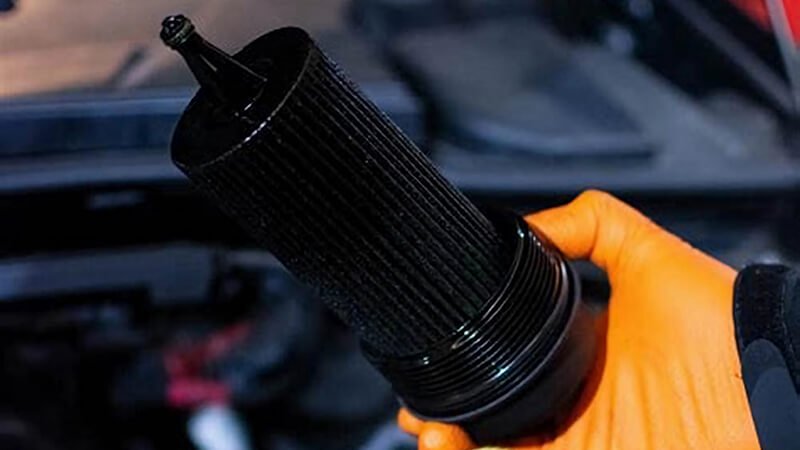Changing your oil filter but not the gasket? That’s a tiny mistake that might cost you an engine. Let's explore why skipping that small rubber ring can lead to massive consequences.
Yes, always replace the oil filter gasket—never reuse it. A reused or leftover gasket can cause leaks, pressure loss, and even engine failure. It’s a cheap part that protects a very expensive system.
Replacing oil filters is routine. But what seems like a tiny detail—the gasket—can make or break the system. At Runex Auto, we’ve seen the impact of ignoring this component. I’ve dealt with clients losing engines and credibility over this simple part. So let’s break it down.
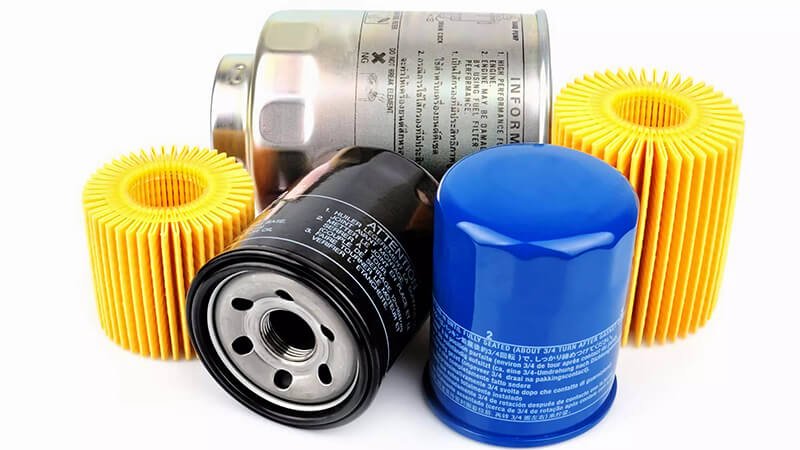
Can I use the same oil filter twice?
Reusing an oil filter seems like a cost-saving idea—but it's a dangerous gamble.
You should never reuse an oil filter, even once. Used filters contain contaminants, lose filtration efficiency, and can’t guarantee sealing performance. Runex Auto designs oil filters for one-time, high-efficiency use only.
Why reusing oil filters doesn't make sense
I once had a client ask if they could reuse a high-performance Runex oil filter1 on a fleet vehicle to save a few bucks. The answer was no. Here’s why:
🔍 Contamination Retention
A used oil filter is already filled with trapped particulates—dust, metallic shavings, degraded oil residues. Reinstalling it sends all that back into the engine. That shortens engine life.
📉 Efficiency Loss
Our oil filters at Runex Auto use synthetic or cellulose filter2 media designed to capture particles down to 25 microns. After one oil cycle, those media become clogged, losing efficiency fast.
| Filter Condition | Filtration Efficiency | Risk Level |
|---|---|---|
| New (Runex OEM) | >98% @ 25 microns | Safe |
| Used (after 5000 km) | <75% | High Risk |
| Reused (after flush) | Unpredictable | Very High |
🔩 Gasket Failure
The gasket—part of the seal between the filter and engine block—is designed for a single torque cycle. After that, it hardens, deforms, and loses elasticity. That increases the chance of leaks.
In short, the cost of reusing an oil filter is far higher than replacing it.
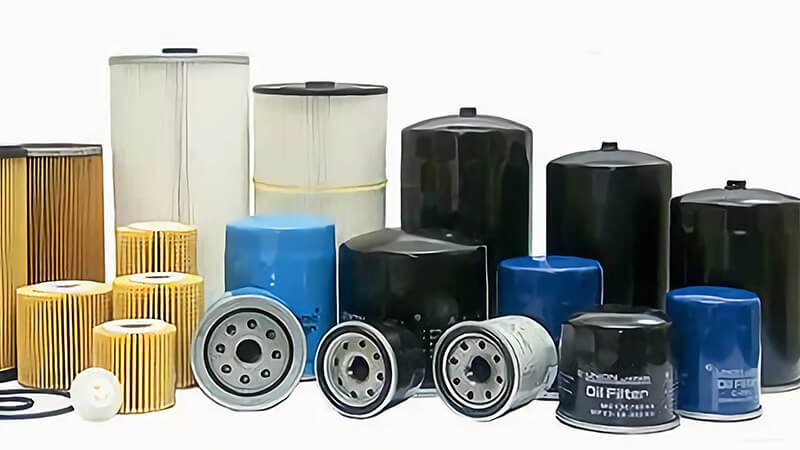
Should you always replace gaskets?
It’s easy to ignore the gasket. But if there’s one place to be paranoid in vehicle maintenance—it’s right here.
Yes, always replace the oil filter gasket. At Runex Auto, we manufacture gaskets for single-use only—double gaskets or re-torquing old ones cause pressure loss, leaks, and system failures.
The small part that can destroy an engine
At Runex Auto, we’ve seen how small gasket-related oversights3 can become nightmares. One of our UK clients saw a spike in warranty claims. Their technicians sometimes missed removing the old gasket. What followed?
- Oil leaks within 1,000 km
- Sudden pressure drops
- Engine shutdowns
- Angry fleet customers
We advised: replace every time.
Since then, they’ve had zero failures4. The result? Lower support tickets. Better fleet trust. Less stress. We even printed visual reminders on the packaging: "Always replace gasket. Check old one isn’t stuck."
What happens when you skip it?
🔥 Blowouts from double gaskets
If the old gasket sticks and the new one is applied over it, the result is a double seal. That seal fails under heat and pressure—often catastrophically.
💧 Slow leaks from hardened rubber
Even if reused properly, an old gasket hardens after exposure to hot oil. It won’t seal perfectly again. This leads to oil drips, hard-to-trace leaks, and a dirty engine bay.
🧰 Poor torque and sealing
Used gaskets no longer compress evenly. That uneven torque leads to either overtightening or undertightening—both bad for the engine block threads.
Bottom line: the gasket is a one-time-use item. Treat it like a fuse—replace it before it breaks.
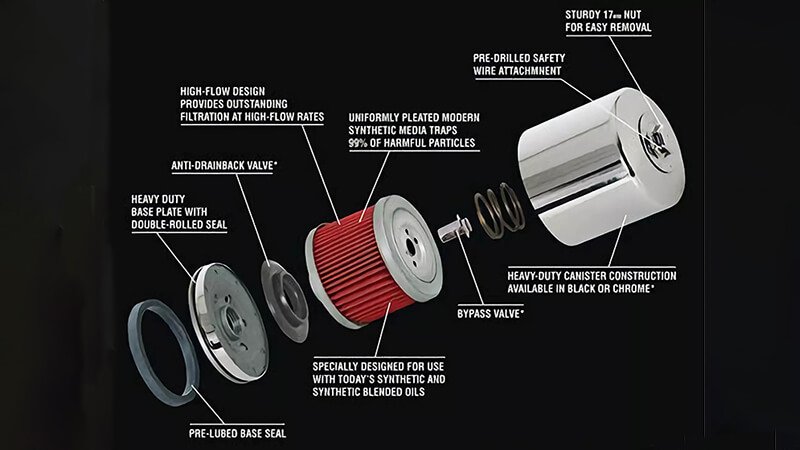
How do I know if my gasket needs replacing?
What if I forget to check the gasket? Can I trust it’s still good? These are dangerous assumptions.
If the oil filter has been used, its gasket must be replaced. You can’t visually confirm a gasket’s reliability—always assume it needs replacement.
Why visual checks don’t work
You might think, “This gasket looks fine. No cracks.” But that’s deceptive.
❌ Hidden heat damage
Rubber gaskets undergo constant expansion and contraction cycles5. The elasticity drops even when there are no visible cracks. That’s internal fatigue—not visible to the eye.
❌ Seal memory loss
Oil filter6 gaskets are designed to form a “memory seal”—a compression groove against the metal housing. Once formed, it doesn’t reseal on a second surface perfectly. Microgaps form, leading to leaks under pressure.
❌ Contamination film
Used gaskets may have thin films of used oil, dirt, and fine particles. Even a slight misalignment causes bypasses that dump oil all over the engine block.
Preventive inspection checklist
Here’s what we recommend to every Runex distributor and mechanic:
| Step | Action |
|---|---|
| Remove filter | Carefully unscrew filter, watching for gasket |
| Inspect filter base | Confirm gasket came off with filter |
| Inspect engine contact point | Clean surface, ensure no gasket stuck |
| Install new gasket | Lightly oil new gasket, install with filter |
| Torque properly | Follow specs—don’t over- or under-tighten |
This habit ensures every oil change is clean, sealed, and worry-free.
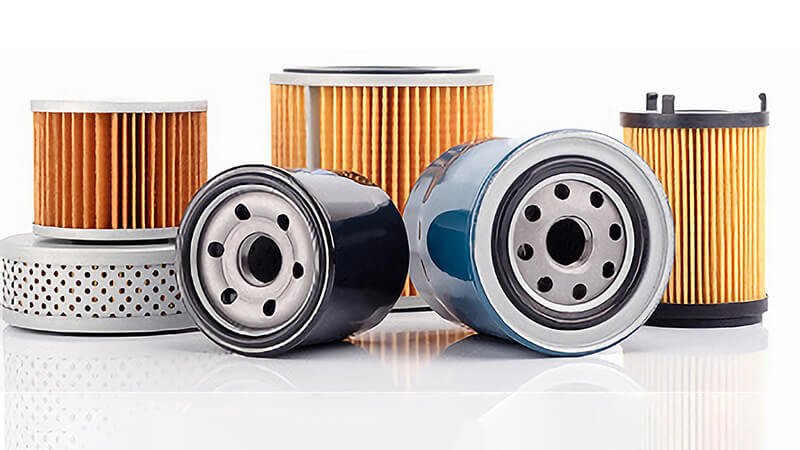
How do I know if my oil gasket is bad?
Sometimes you find out too late. Oil in the driveway. A warning light. Or worse, engine stall.
The signs of a bad oil gasket include fresh leaks, low oil levels, oil smell in the cabin, and engine overheating. If your oil light flickers after a change, check the filter gasket first.
Warning signs you should never ignore
I've had a customer call after noticing oil on their driveway a day after their service. The issue? Old gasket stuck to the engine. The new filter squeezed against it—failed under pressure.
Here’s how to spot it early:
🔴 Oil on the ground
Fresh puddles under the vehicle after driving? Check around the oil filter. Gasket leaks are often near the filter’s edge, not the pan.
⚠️ Oil pressure light
If your dashboard oil light flickers or stays on, it means the oil system7 isn't sealed—often a gasket issue.
🌫️ Burning oil smell
Oil dripping onto hot engine parts gives off a sharp, acrid smell—usually noticed while idling.
🧯 Engine overheating
A low oil level reduces cooling and lubrication8. If the engine starts overheating or knocking—stop immediately.
What to do if it fails
- Turn off the engine immediately.
- Let it cool.
- Check oil level. Top up if needed.
- Inspect the oil filter area.
- Replace the filter and gasket. Don’t try to “tighten more.”
If you can’t find the source, replace the whole oil filter assembly—including the gasket.
At Runex, our support team is trained to help clients diagnose these issues fast. That’s one reason our fleet customers keep coming back—they trust we won’t leave them guessing.
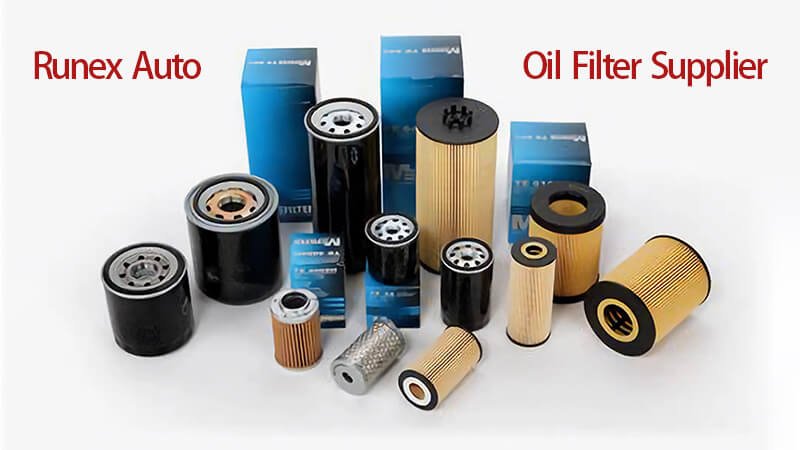
Conclusion
Always replace your oil filter 9 gasket—no exceptions. It’s a small, inexpensive part with massive importance. At Runex Auto, we design our filters and gaskets for single-use reliability. Reusing them can lead to leaks, engine failure, and warranty claims. I've seen customers lose money and trust because of this simple oversight. Don’t let a $1 gasket cost you a $10,000 engine. Replace it. Check twice. Sleep better.
-
Discover why Runex oil filters are designed for optimal performance and longevity, ensuring your engine runs smoothly and efficiently. ↩
-
Discover how cellulose filter media enhances oil filtration efficiency and protects your engine from harmful particulates. ↩
-
Understanding gasket-related oversights can help prevent costly engine failures and improve maintenance practices. ↩
-
Discover how Runex Auto's strategy of replacing gaskets every time led to zero failures, enhancing reliability and customer satisfaction. ↩
-
Understanding contraction cycles helps in identifying hidden damages in gaskets, ensuring better maintenance and preventing potential leaks. ↩
-
Understanding the role of oil filters helps ensure engine longevity and performance by preventing leaks and contamination. ↩
-
Understanding common oil system issues can help prevent engine damage and costly repairs by addressing problems early. ↩
-
Understanding oil's role in cooling and lubrication helps prevent engine damage and ensures optimal performance. Learn how to maintain your vehicle's health. ↩
-
Find the best quality auto oil filter from Runex Auto. ↩

